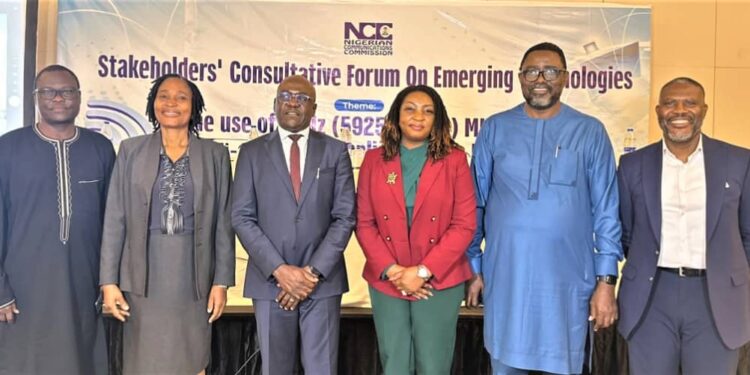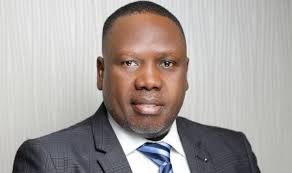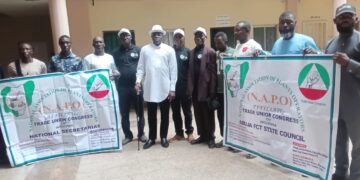The Nigerian Communications Commission (NCC) has taken a significant step to address the ongoing network issues in the country by opening up the six-gigahertz (GHz) spectrum band to network providers.
This move is aimed at tackling the persistent network outages and congestion that have plagued Nigeria’s telecommunications industry for years. The decision was revealed during the Stakeholders’ Consultative Forum on Emerging Technologies, where industry leaders and experts gathered to discuss solutions to the nation’s network challenges.
At the forum, a detailed presentation highlighted the severity of Nigeria’s network issues, revealing that the country experiences over 1,600 fiber cuts and more than 500 network outages every month. These disruptions impact the service quality of over 83 million users annually.
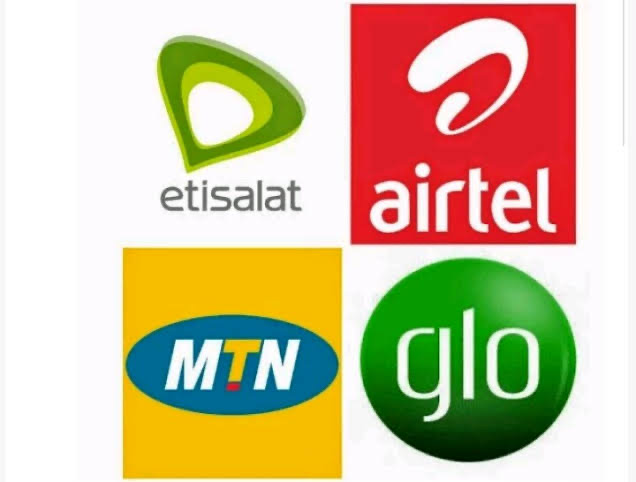
The recurring fiber cuts are particularly problematic due to the slow and often cumbersome process of fiber deployment, despite the fact that Nigeria’s telecom sector has been undergoing a revolution for more than two decades. These challenges have created a significant need for alternative solutions to ensure reliable network services.
One of the key solutions presented at the forum was the use of long-haul microwave links as a backup for fiber cuts. This would help mitigate the impact of fiber cuts on network reliability.
In addition, the NCC has taken a bold step by announcing that Nigeria will join the growing number of countries utilizing the 6GHz spectrum band for Wi-Fi 6 applications and International Mobile Telecommunications (IMT). This development is expected to significantly improve network connectivity across the country.
Atiku Lawal, the acting head of spectrum administration at the NCC, emphasized that the existing 2.4GHz and 5GHz bands used for Wi-Fi are becoming overcrowded, which limits their effectiveness.
“Capacity in the unlicensed use of the 6GHz band for Wi-Fi will improve Quality of Service (QoS) through Wi-Fi 6 offload as the use of Wi-Fi at home, offices, institutions, and airports will help relieve networks of capacity constraints by taking devices off the cellular networks,” Lawal explained.
With over 70 countries already considering the use of the 6GHz band for unlicensed Wi-Fi, Nigeria’s adoption of this spectrum band represents a critical step toward modernizing its telecommunications infrastructure.
The 6GHz spectrum is a range of radio frequencies that can support multi-gigabit speeds, enabling faster and more reliable internet connections. Aminu Maida, the executive vice chairman of the NCC, noted that the 2023 World Radiocommunications Conference (WRC-23) allocated the 6GHz band for Wi-Fi and IMT applications.
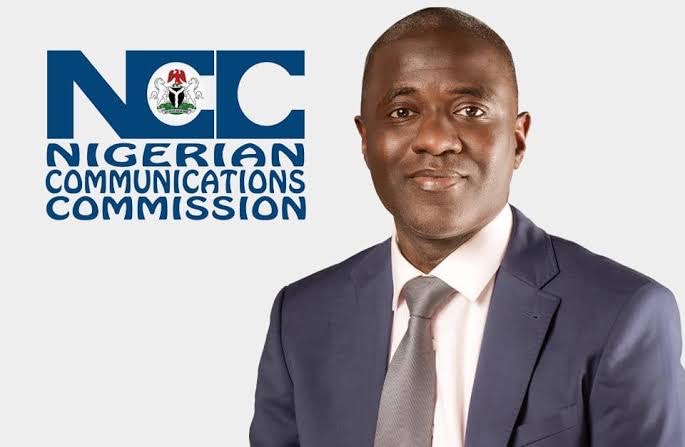
According to Maida, “The 6GHz band, spanning from 5925 MHz to 7125 MHz, offers a substantial increase in available spectrum, which is crucial for supporting the growing demand for high-speed internet and advanced applications. Wi-Fi plays a crucial role in the distribution of fixed broadband connectivity in homes, offices, and various other environments.”
Telecommunications experts also weighed in on the potential benefits of the 6GHz spectrum. Professor Caroline Alenoghena, a Telecommunications Engineering expert at the Federal University of Technology in Minna, explained that the 6GHz band would bring several advantages, including increased wireless capacity, faster speeds, reduced network congestion, and bridging the digital divide in rural areas.
This spectrum band has the potential to revolutionize connectivity in underserved regions, offering high-speed internet to communities that have historically lacked reliable access.
Tony Emoekpere, president of the Association of Telecommunications Companies of Nigeria (ATCON), described the 6GHz spectrum as a “critical asset for future telecommunications growth,” especially as the demand for high-speed connectivity continues to rise. He noted that “One of the most exciting promises of WiFi-6 and IMT deployment is its potential to bring high-speed, low-latency internet to underserved and rural areas.”
However, deploying services on the 6GHz band will not be without its challenges. Significant investments will be required to upgrade existing mobile networks and Wi-Fi infrastructure to support the new technology. Emoekpere stressed the importance of ensuring that telecom operators and Internet Service Providers (ISPs) have the financial and technological capacity to absorb and deploy the 6GHz band effectively.
“Telecom operators and Internet Service Providers (ISPs) must have the capacity to absorb this new technology,” he said, highlighting the importance of preparation for the impending infrastructure upgrades.
Professor Alenoghena echoed these concerns, pointing out that deploying 6GHz technology will require substantial infrastructure investments, including new base stations, antennas, and fiber optic cables. These upgrades will be costly, and many telecom operators are already facing financial difficulties due to the harsh economic environment. Operators have projected a decline in network investments due to poor returns on capital in recent years.
Karl Toriola, the chief executive officer of MTN Nigeria, recently emphasized the financial strain on the industry, stating, “Investments will not continue to come. No one will put in a dollar and continue to get 66 cents… We are in a big crisis.”
In 2023, both MTN Nigeria and Airtel Africa suffered significant financial losses, with a combined N1.29 trillion lost due to foreign exchange (FX) issues. MTN Nigeria posted its first-ever loss since being listed on the Nigerian Stock Exchange in 2019, reporting a loss of N137 billion in 2023 alone.
The financial constraints faced by telecom operators are further compounded by the need to upgrade infrastructure to support the 6GHz spectrum. Gbolahan Awonuga, executive secretary of the Association of Licensed Telecoms Operators of Nigeria (ALTON), stressed the need for funding to modernize the country’s telecommunications infrastructure. “We need money to upgrade our infrastructure and import equipment so as to benefit from the 6GHz. Our members are struggling to expand their infrastructure,” Awonuga said.
To ensure the successful rollout of 6GHz technology, industry leaders have called for policies that encourage public-private partnerships, reduce Right of Way (RoW) charges, and simplify regulatory processes to facilitate infrastructure expansion.
Emoekpere of ATCON emphasized the importance of supporting smaller ISPs, who may not have the financial resources to compete for high-cost licensed spectrum but can benefit greatly from unlicensed spectrum use. “A particular consideration here is the role of smaller, local ISPs who may not have the financial capacity to compete for high-cost licensed spectrum but can greatly benefit from the unlicensed spectrum provided by WiFi-6,” he said.
Supporting smaller ISPs is crucial for expanding broadband penetration in underserved and rural areas, which is a key goal of the 6GHz spectrum rollout. With the right investments and policies, Nigeria has the opportunity to close the digital divide and significantly improve its telecommunications infrastructure for the future.
However, this will require a concerted effort from both the private sector and the government to ensure the necessary investments are made to support the next phase of Nigeria’s telecom revolution.


